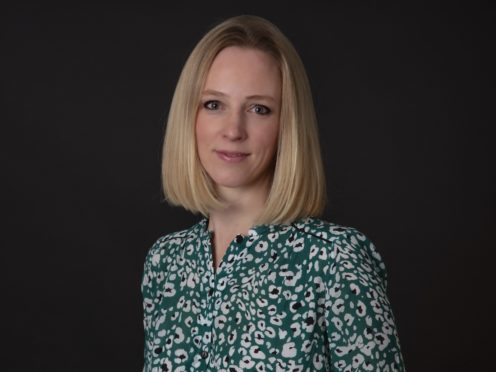The chief executive of a leading media charity has said a new survey into mental health is vital to confront an “unspoken crisis in the industry”.
Alex Pumfrey, who fronts the UK’s Film and Television Charity, said she saw “fantastic opportunity” as she launched the industry-wide study on Monday.
Dubbed The Looking Glass, the survey aims to offer an in-depth analysis of the mental health and wellbeing of the UK’s film and TV workforce.

Pumfrey said a clear snapshot was needed to show how these issues affected the sector.
She told the Press Association: “This is a fantastic opportunity for us to all work together to face into what I do believe is an unspoken crisis in the industry and look at what very practical steps we can take to address it.
“Perhaps we do need to address some of the ways we work. Perhaps we do need to make sure there is better support available on set as standard, that is more accessible.
“Perhaps there are more ideas we have not yet thought of. That’s the discussion we want to have with the industry following the research.”
Want to help spread the word about our #film and #tv Support Line where you work? Include these details on your production call sheet, noticeboard, team meetings or weekly updates:
📞 0800 054 00 00, 🕰️ 24/7, 365 days a year.🔗 https://t.co/Is9pM1XnTc pic.twitter.com/cR0cRXWZRY
— The Film & Television Charity (@FilmTVCharity) June 13, 2019
The survey was prompted by what Pumfrey called “a strong hypothesis” there are “serious issues” with the industry’s approach to mental health.
She said the Me Too movement and a colleague’s recent death had also triggered the move.
Location manager Michael Harm died in January 2017, leaving a note to his colleagues saying he felt the industry had not done enough to support him.
“Tragically Michael’s story isn’t unique and as I go out and talk to people, I hear these stories more often than you would think or expect,” said Pumfrey.

“I’ve now got the strong sense that there is more going on there than the industry at large tends to hear.”
Pumfrey is a member of the Time’s Up UK group, which was started in the wake of the Harvey Weinstein scandal and aims to improve workplace conditions for women and stop sexual harassment.
She said mental health and the power dynamics addressed by the Time’s Up movement were intrinsically linked.
She said: “The way in which the power structure of the industry, the way that film sets, TV sets and TV programming works, this can lend itself to abuses of power.
“That’s effectively why Harvey Weinstein got away with what he did for such a long period of time.
“It was because he was a very powerful individual and the system isn’t set up in a way that enabled other people to easily call that out.”
Pumfrey, who has led the charity since October 2017, said it was possible the same dynamic could be at play in the UK’s media industry.
The anonymous survey will run until July and the results will be revealed in autumn alongside research conducted by not-for-profit The Work Foundation.
Those working in the film and television industry can fill in the survey here –
https://filmtvcharity.org.uk/looking-glass-survey?utm_source=pr&utm_medium=social&utm_campaign=looking-glass-survey2019&utm_content=preslease
